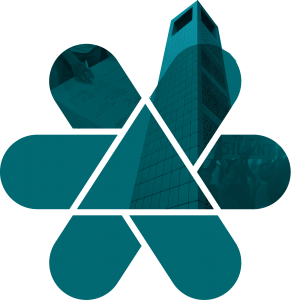ActionAid invested time and resources as a federation to research closing civic space, and developed ways to build resilience and resist external threats.
Download case study
ActionAid was early in identifying the closing space issue in 2013 and invested time and resources as a federation to research the problem, developing ways to build resilience and resist external threats. ActionAid Uganda, a member of the federation’s working group on this issue, would soon put the organisation’s early efforts to the test when their offices were directly attacked by the government in 2017. Their experience and the lessons learned have fed back into the federation’s thinking and strategising on this topic, and they are now sharing that learning with other national offices, and supporting the development of a Rapid Response mechanism.
Collective resilience
Simultaneous attacks were carried out on peers and partners of ActionAid. These partners were not as resilient as ActionAid Uganda, and whilst ActionAid were able to manoeuvre through the crisis, there remained an element of risk or exposure because of these partners. ActionAid Uganda managed to support one organisation in retaining their office space, however, given that their own accounts were frozen, they did not have the resources to do more. There was a collective gap in resources and resilience.
Long-term impact
ActionAid Uganda underestimated the medium to long-term impact of the government’s propaganda against them. Some citizens still think that their accounts are frozen and some donors still feel sceptical of their work. They needed to do more in terms of counter-engagement and communications beyond the initial attacks to reverse that impact.
Staff insecurity
Following the office raid, some staff no longer felt comfortable engaging with sensitive issues for fear of the backlash they might personally experience. Even though psychosocial support was provided, more was needed to build staff resilience.
Chill-effect
Since the attacks, several civil society actors have been compelled to tread more carefully and civic engagement has become more subdued. ActionAid Uganda has had to consider how they can provide assurance and courage to others in the sector, to build sector-wide resilience.
Remaining uncertainty
The case brought against ActionAid Uganda was never resolved and the police never released a report. Although the accounts were unfrozen following political and legal engagement, the unresolved case means the office has a level of uncertainty hanging over its existence. Could they have “exploited the opportunity in the crisis” and pushed back more at the time of the attack, to resolve the case and regain more civic space?
Resources
How can you ensure, when in an emergency, that the office can remain operational, a response to the external threat can be mounted, and the governance or programmatic work for which the group is mandated can also continue? While ActionAid Uganda had healthy reserves as per federation policies, this was just about enough for the three months.
Always keep your house in order
Raids or inspections are mostly impromptu, and authorities seek immediate access to various documents and reports. Ensuring that these are readily available avoids potential additional scrutiny or suspicion.
Understand all processes
All staff and all board members must understand all processes. Questioning of organisational representatives in different locations must produce a consistent picture of how the organisation operates, in order to avoid contradictions that may further raise suspicions.
Legal response
A rapid legal response is necessary.
Relationship with the media
A positive relationship with the media is essential. In order to reduce reputational damage and have a platform for underlining an organisation’s legitimacy and value, links to media or social media platforms are important.
Be relevant to civil society
It is vital that an organisation be relevant to civil society and to local and national citizens. If it is, then there will hopefully be a show of solidarity that demonstrates its relevance and value.
Transparency
Be transparent about operations and mission, and defend the organisation’s values.
- The organisation’s bank accounts were unfrozen.
- The amendment on land acquisition was eventually shelved, pending ‘further consultation’. However, the amendment concerning the President’s age passed, and has recently been upheld by the Supreme Court but the civic resistance movement continues to grow.
- ActionAid Uganda saw the importance of civic space as an issue and have since integrated this into their programmatic work. For example, they now run a Sida-funded programme that coordinates the response to shrinking political space. Through this they developed a response mechanism that covers documentation, analysis, strengthening resilience and extra-legal support, and which helps to bring actors together.
- They are now budgeting for the defence of rights and activists in an intentional way, for example by setting aside resources to enable them to respond to actors facing threats from the state.
Outcomes outside Uganda
- The experience of ActionAid Uganda helped to inform an internal Learning Paper which has been shared across the federation. Lessons from the national level have fed back into the federation-wide discussion.
- ActionAid Uganda is supporting other offices to develop scenarios and planning, based on their experiences.
- Work is ongoing on strengthening federation resilience. For example, a Rapid Response mechanism is in development. ActionAid Uganda has supported mapping work and analysis of potential structures, looking at how this tool could monitor civic space and make predictions for the federation.